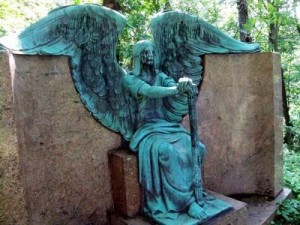Scripture and homily in brief for the Thursday occurrence of All Hallows Day, the First of the Piety dozenal of All Hallows season.
First Letter of Paul to the Corinthians 12
12 Just as the body is one and has many parts, and all the body parts—though many—are one body, so it is with the Anointed.
13 For in the one Spirit we were all baptized into one body—Jews or Greeks, slaves or free—and we were all made to drink of one Spirit.
14 Indeed, the body does not consist of one part but of many.
15 If the foot were to say, ‘Because I am not a hand, I do not belong to the body,’ that would not make it any less a part of the body.
16 And if the ear were to say, ‘Because I am not an eye, I do not belong to the body’, that would not make it any less a part of the body.
17 If the whole body were an eye, where would the hearing be? If the whole body were hearing, where would the sense of smell be?
18 But as it is, God arranged the parts in the body, each one of them, as He chose.
19 If all were a single part, where would the body be?
20 As it is, there are many parts, yet one body.
21 The eye cannot say to the hand, ‘I have no need of you’, nor again the head to the feet, ‘I have no need of you.’
22 On the contrary, the parts of the body that seem weaker are indispensable,
23 and those parts of the body that we think less honorable we clothe with greater honor, and our less respectable members are treated with greater respect;
24 whereas our more respectable members do not need this. But God has so arranged the body, giving the greater honor to the inferior member,
25 that there may be no dissension within the body, but the members may have the same care for one another.
26 If one member suffers, all suffer together with it; if one member is honored, all rejoice together with it.
Homily in Brief
 On All Hallows Day (also known as All Saints Day) we honor “all saints, known and unknown,” by which we mean not only the roster of officially accepted saints but also anyone who has demonstrated a noteworthy degree of virtue in the way they lived or died.
On All Hallows Day (also known as All Saints Day) we honor “all saints, known and unknown,” by which we mean not only the roster of officially accepted saints but also anyone who has demonstrated a noteworthy degree of virtue in the way they lived or died.
There is a common but unfair criticism among Protestants that the Catholic church, in its veneration of saints, simply replaced pagan polytheism with a new polytheism. After all, were not pagan emperors and other celebrated figures believed to take on godhood after death, through the process known as apotheosis? And how is the assignment of saintly patronage—for example, as Thomas is the patron of stone masons—any different from the spheres of godly influence in ancient Graeco-Roman religion? The argument that saints are simply refashioned gods seem bolstered by the fact that today’s holiday, All Hallows, began when Bishop Boniface of Rome (i.e., “Pope” Boniface IV) rededicated the Pantheon, or “Temple of All Gods,” to Mary and all of the martyrs.
But, there is a crucial distinction between the pagan devotion to many gods and Christian devotion to angels and saints. The strongest clue is in the word “angel” itself, which comes from Greek ἄγγελος, a direct translation of the Hebrew מלאך meaning “messenger.” Unlike the rag-tag collection of powers that typify Roman mythology, the angels and saints of Christianity are messengers of the One God. As they all point toward God Most High, they remind us that all things issued from that Source.
Christian devotion to a multitude of angels and saints in charge of different aspects of life fulfills the spiritual purpose of monotheism by channeling the many facets of Creation toward the singular Creator.
In fact, the multifaceted cult of the saints and angels helps protect against the false gods of idolatry, by reminding us that the One True God is the God of all things, not merely the master of a small part of Creation. Religion that fails to honor the entire “body” of God’s Creation by recognizing its many “parts” runs the risk of being like the eye (in 1Cor 12:21) who tells the hand it is unneeded: a piece that mistakes itself for the whole. To paraphrase Paul: if your whole religion is an eye, where can the hearing be?
Discussion question: Many so-called polytheistic traditions conceive their various “gods” as merely expressions of a single Divinity. How does the nature of this connection affect the moral significance of the religion? Can believers whose “gods” are more like angels be considered monotheists? Is the God of such a religion the same as the God of Christ Jesus?
